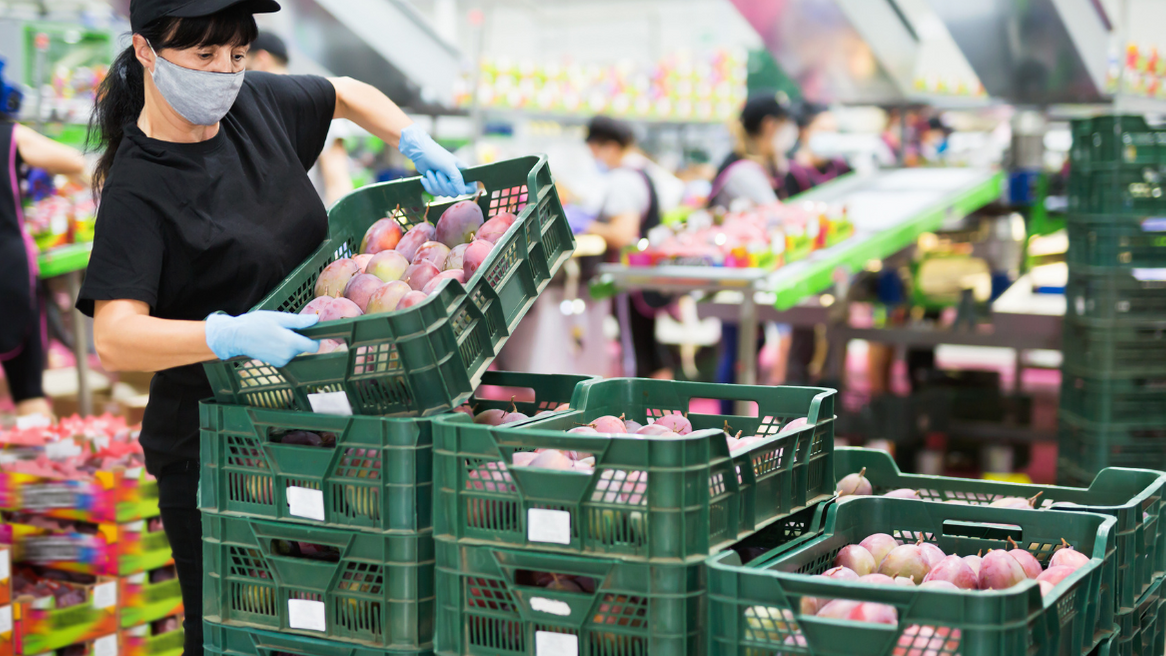1 June 2021

By the middle of the century, the global population is estimated to increase from 8 to 10 billion. This will drive higher demand for food in an increasingly complex supply chain network. Suppliers will also be under pressure to deliver sustainable and environmentally acceptable solutions. These are typically grouped under Environmental, Social, and Governance (ESG) risks and are often interlinked.
1. Supply chain complexity
A recent example of governance risk was seen when the UK left the EU at the end of last year with a knock-on effect on supply chains. In January, trade was down by over a third with much of this attributed to the additional paperwork.
From farm to fork, a complex network of entities faces threats ranging from climate change such as adverse weather to contamination and cyber risks. It was estimated that supermarkets lost as much as £22m after the ‘Beast from the east’ hit Britain in 2018. Meanwhile, when Maersk refused to bow down to a ransomware attack in 2017, they were left communicating via WhatsApp and suffered losses estimated at $300m as their shipping and container movements ground to a halt.
Planning to mitigate against the myriad of supply chain risks will require a holistic approach encompassing insurance and risk management strategies.
2. Reputational risk
“It takes 20 years to build a reputation and five minutes to ruin it. If you think about that, you'll do things differently.” Warren Buffett |
A food scandal can hit the bottom line as well as the brand. In the USA alone, food recall increased 300% in the last decade at an average cost of $10m for each recall. The media and public relations fallout can be exacerbated by the societal impact leading all the way to the boardroom in the form of class actions and potentially Directors’ & Officers’ insurance claims.
Historical risks seen in the tobacco industry could be repeated in other areas such as obesity or the use of nitrates in food production becoming a health issue. The potential risks for the food & drink industry in this respect may be seen in the future, but the challenges need to be addressed now.
3. Managing currency fluctuation
Margins are tight throughout the supply chain and volatility in currency can have a severe impact on whether or not a firm can remain profitable. In any one year, even large agribusinesses have been hit by fluctuations of 10-20%. A planned and well-executed hedging strategy can go a long way in managing this risk.
4. Attracting and retaining talent
The food and drink industry employs many seasonal and temporary workers. Post-Brexit, there are new regulations for firms who rely on this type of workforce. The extension to The Seasonal Workers Pilot will help to alleviate the risks for the agriculture sector. It was extended and expanded at the end of 2020 allowing 30,000 migrant workers to stay for up to 6 months to support the 2021 harvest.
In the longer-term, businesses who believe they will be affected should conduct a gap analysis to identify potential skills shortages and plan how these will be filled. On a broader level, a considered, affordable, and sustainable Employee Benefits offering can help attract, reward, and retain high calibre employees who are vital to the success of any business.
5. Sustainability and traceability
Eleven firms from producers such as Danone and Nestlé to retailers such as Tesco and Sainsbury’s are supporting an EU plan to increase supply chain transparency and traceability linked to deforestation. It is a high-level example of ESG being top of the agenda.
Also, consumers need to trust what they eat, and sophisticated networks require sophisticated solutions. Digital tracing can help alleviate many of the risks providing the ability to identify and track the history, distribution, and location of a product. Savvy consumers may want to do this at the point of purchase and will have the ability to do so with smartphone technology. It is a huge step forward in providing transparency in identifying issues such as contamination, fraud, and sustainability.
6. The future of insurance in challenging times
The global pandemic has led to a seismic shift in the insurance world with insurers losing out in the ruling of the courts regarding business interruption claims.
The potentially huge costs are not sustainable in the future. Going forward, more innovative solutions will be required. For example, parametric insurance can provide a limited, but set amount of protection, which pays out immediately following a proven trigger like a storm.
Mitigating the risks faced by the industry across complex supply chains will not be simple. However, a combination of risk transfer in the form of insurance, underpinned by robust risk management, will be essential – which is where the Verlingue team can help.
Contact us
For more information on how we could help your business, please contact our Food and Drink specialist Alan Midson on 07725 547914 or email alan.midson@verlingue.co.uk
